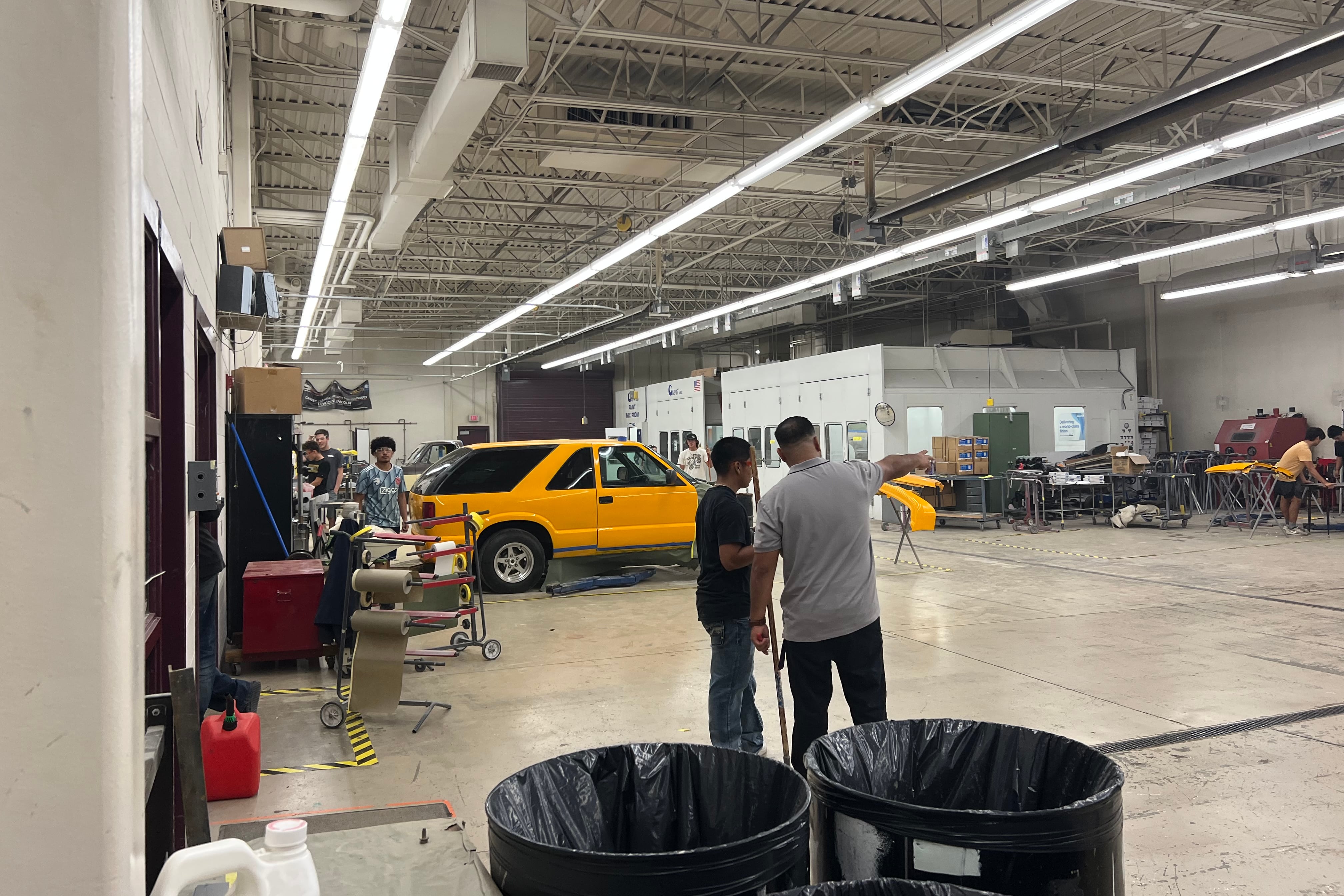Sign up for Chalkbeat Indiana’s free daily newsletter to keep up with Indianapolis Public Schools, Marion County’s township districts, and statewide education news.
Update: The Indiana legislative session ended on March 8, 2024. Here are the education bills that did and didn’t pass.
Just over 200 Indiana students received state funding for job training in the first year of the state’s Career Scholarship Accounts program, state officials said Wednesday, as lawmakers consider expanding the allowed uses for the money to include paying to get a driver license.
These accounts were the centerpiece of Republican lawmakers’ plans to “reinvent high school,” during the last legislative session, and allowed students to access state funding for workforce training outside of their schools. Advocates said the law would open more doors for students whose schools didn’t offer certain training programs, while critics said it lacked transparency, and could affect funding for high schools’ career and technical education programs.
State officials anticipated that 1,000 students in grades 10-12 would participate in the program during its first year, with each one eligible to receive up to $5,000 for job training and related expenses. Lawmakers appropriated $15 million over two years for the scholarship accounts.
While 574 students applied for the program, around 40% were rejected because they did not have job training lined up, said representatives from the Indiana Treasurer’s Office during a hearing of the House Committee on Education on Wednesday. The program is jointly administered by the treasurer, the Indiana Department of Education, and the Commission on Higher Education.
The 234 students who were approved for scholarship accounts received an average of $3,200 each for curriculum and course material, they said, for a total allocation of $1.17 million.
A total of 30 organizations have been approved as providers for job training, including Indiana University, Ball State, and Ivy Tech, according to the higher education commission.
Lawmakers are considering a bill during this year’s session that would make changes to the law, including allowing students to use the funding to obtain driver’s licenses so they can commute to job training — something that advocates say would encourage participation.
House Bill 1001, authored by Chuck Goodrich, a Noblesville Republican, also seeks to allow students to use scholarships earmarked for attending college after high school for job training instead — a proposal that was rejected last year.
Proponents of the driver’s license provision said that allowing students to use the funding for licenses would open the program to those who otherwise could not get to work sites. The original career scholarship bill provided funding for transportation, but did not specify driver’s licenses.
“Driver’s licenses are a big barrier to growing the program. Kids couldn’t get to where they needed to get,” said Abhi Reddy, legislative counsel at the Treasurer’s Office.
However, Rep. Ed DeLaney, an Indianapolis Democrat, noted that offering funding for driver’s licenses through one program might motivate students to drop academic paths in favor of pursuing a job training scholarship.
The education committee rejected DeLaney’s amendment to remove the provision allowing students to use college scholarship funds — like the 21st Century Scholarship aimed at low-income students — for job training.
It also turned down a separate amendment authored by DeLaney that would’ve required that students be paid for the work they do during their job training opportunities.
“The potential for abuse is all through this bill, and this is one example where the abuse would directly affect the student,” DeLaney said.
HB 1001 passed the education committee and will move to the House.
You can track this bill on the General Assembly’s website.
This story has been updated with a total allocation for career scholarship accounts from the treasurer’s office.
Aleksandra Appleton covers Indiana education policy and writes about K-12 schools across the state. Contact her at aappleton@chalkbeat.org.








